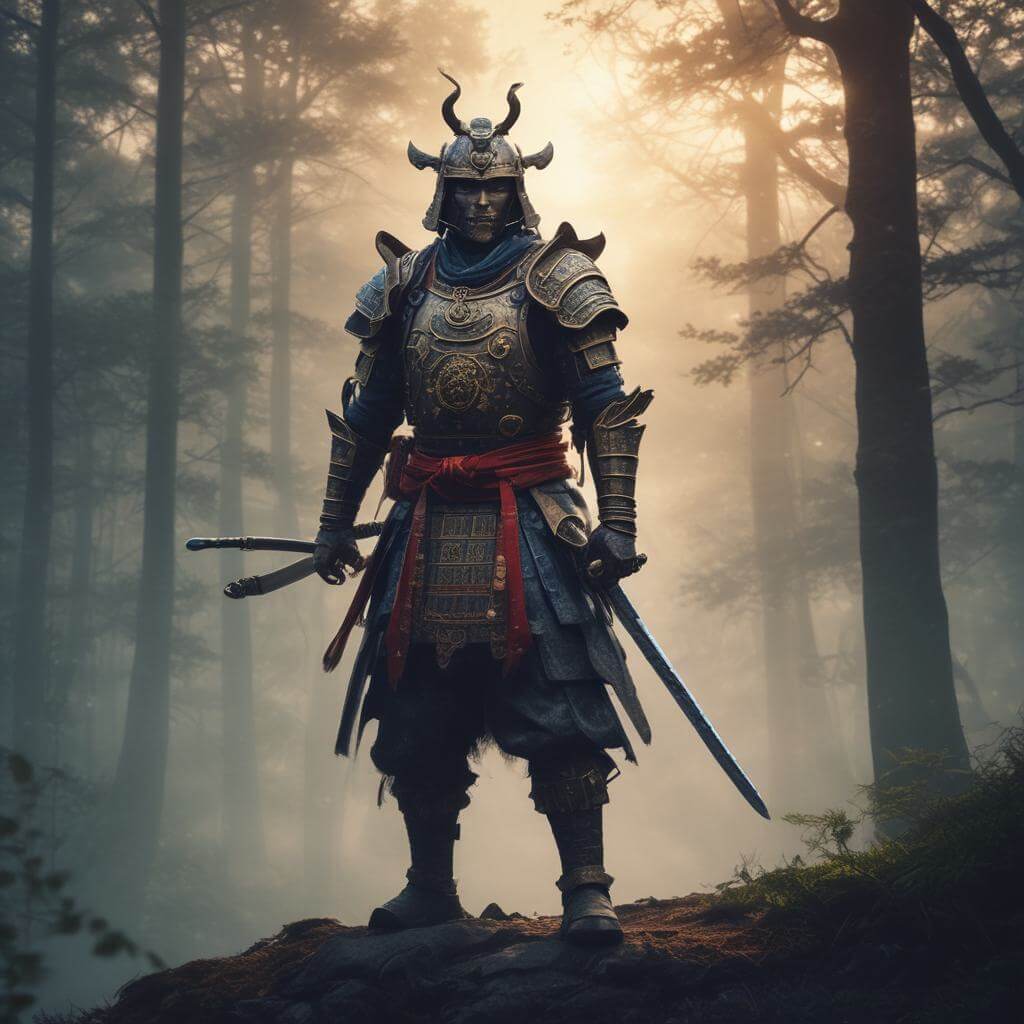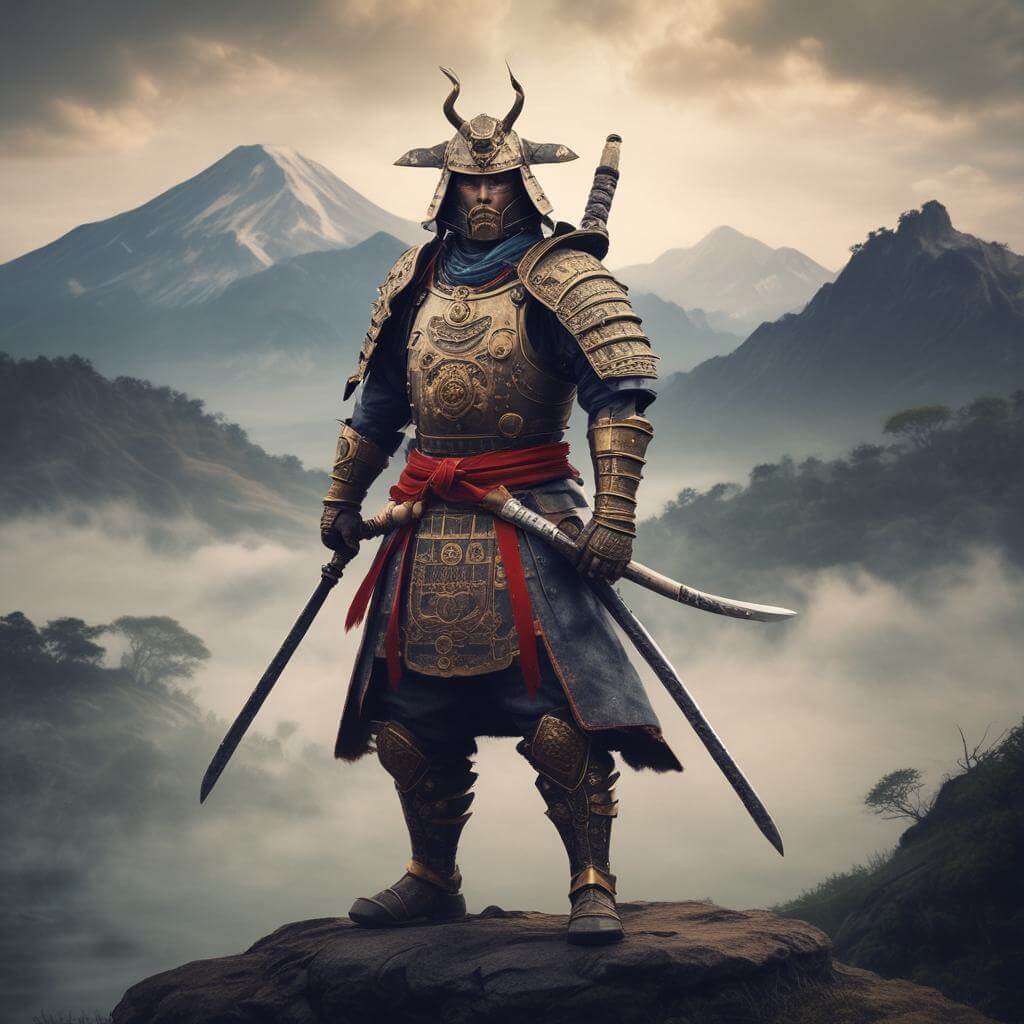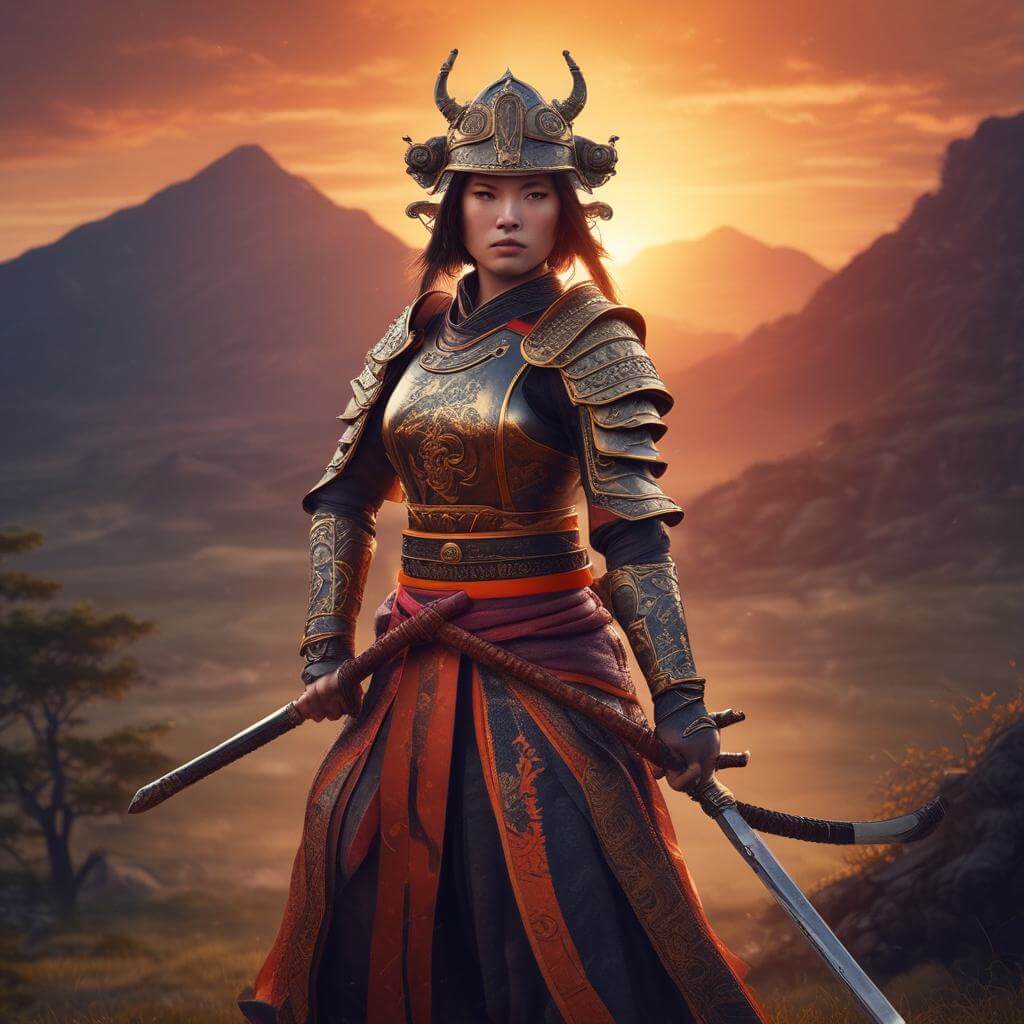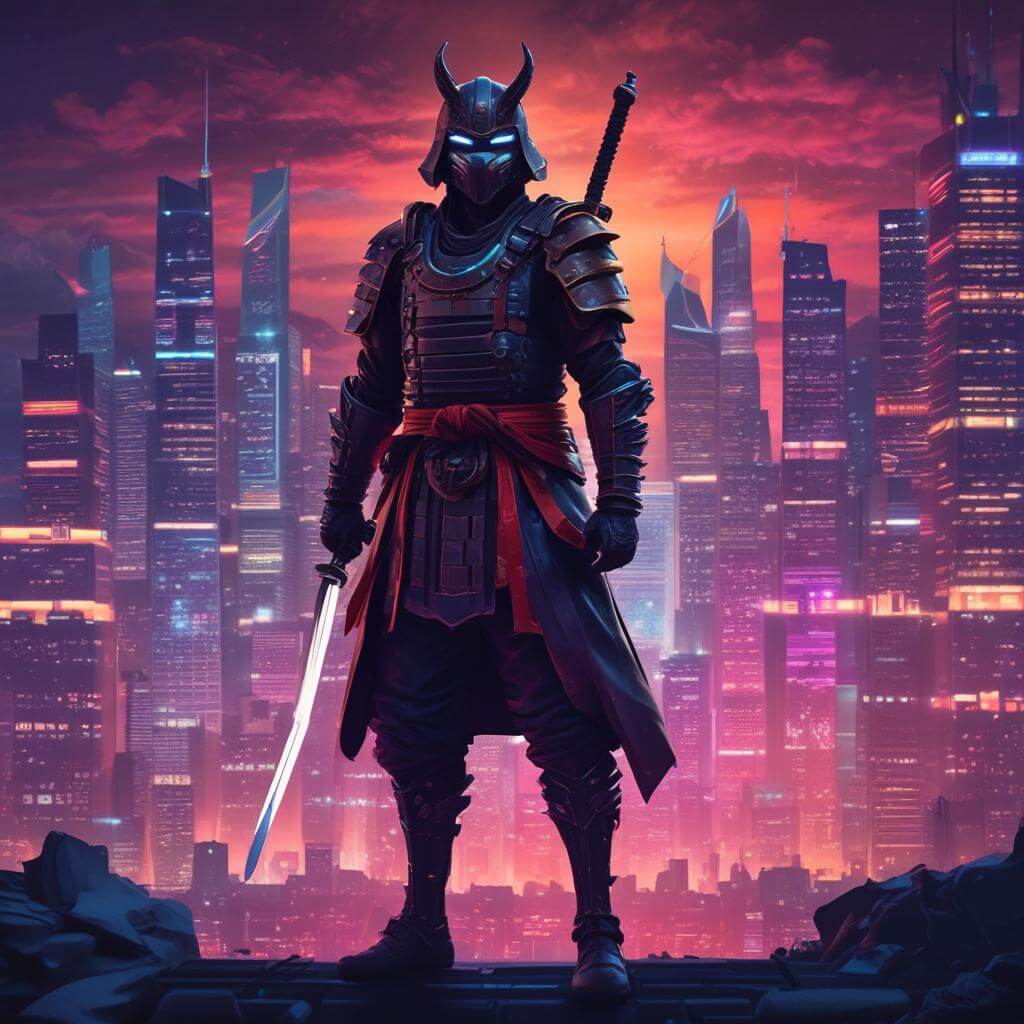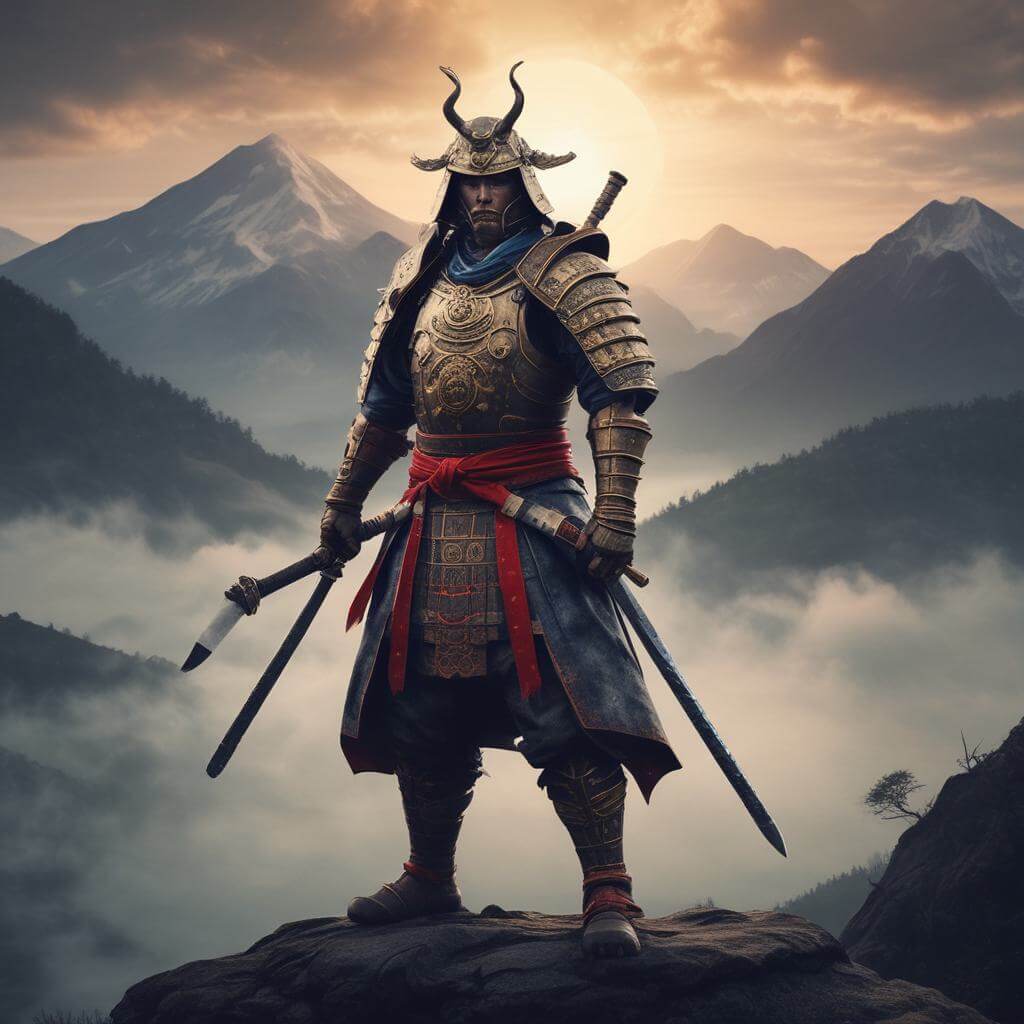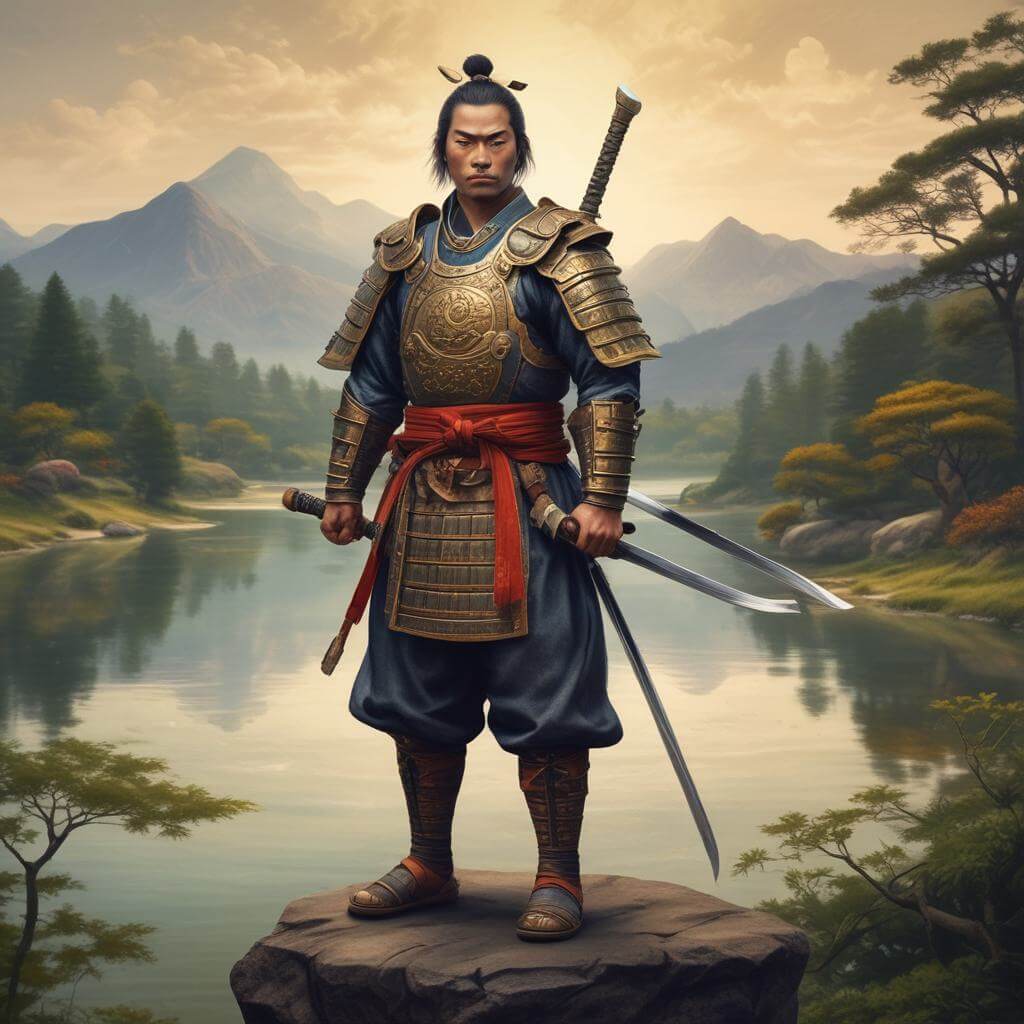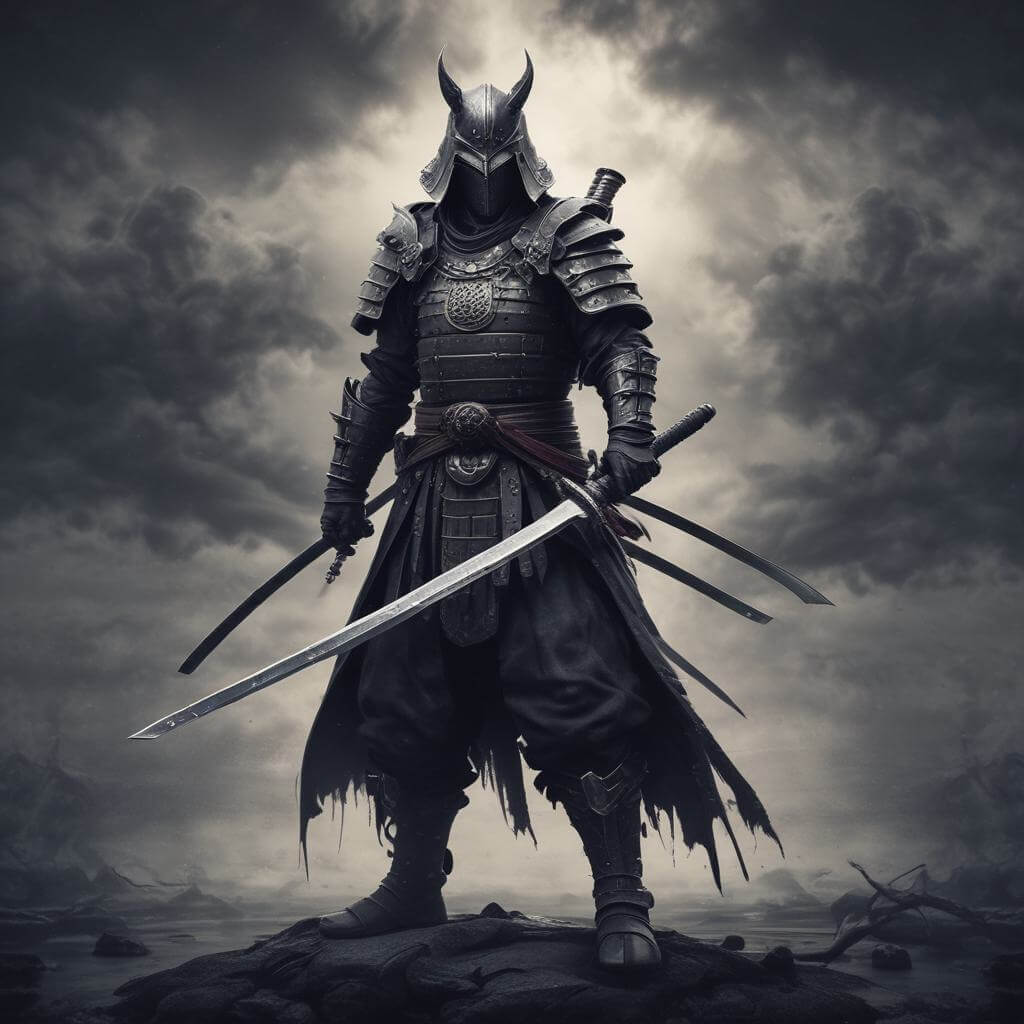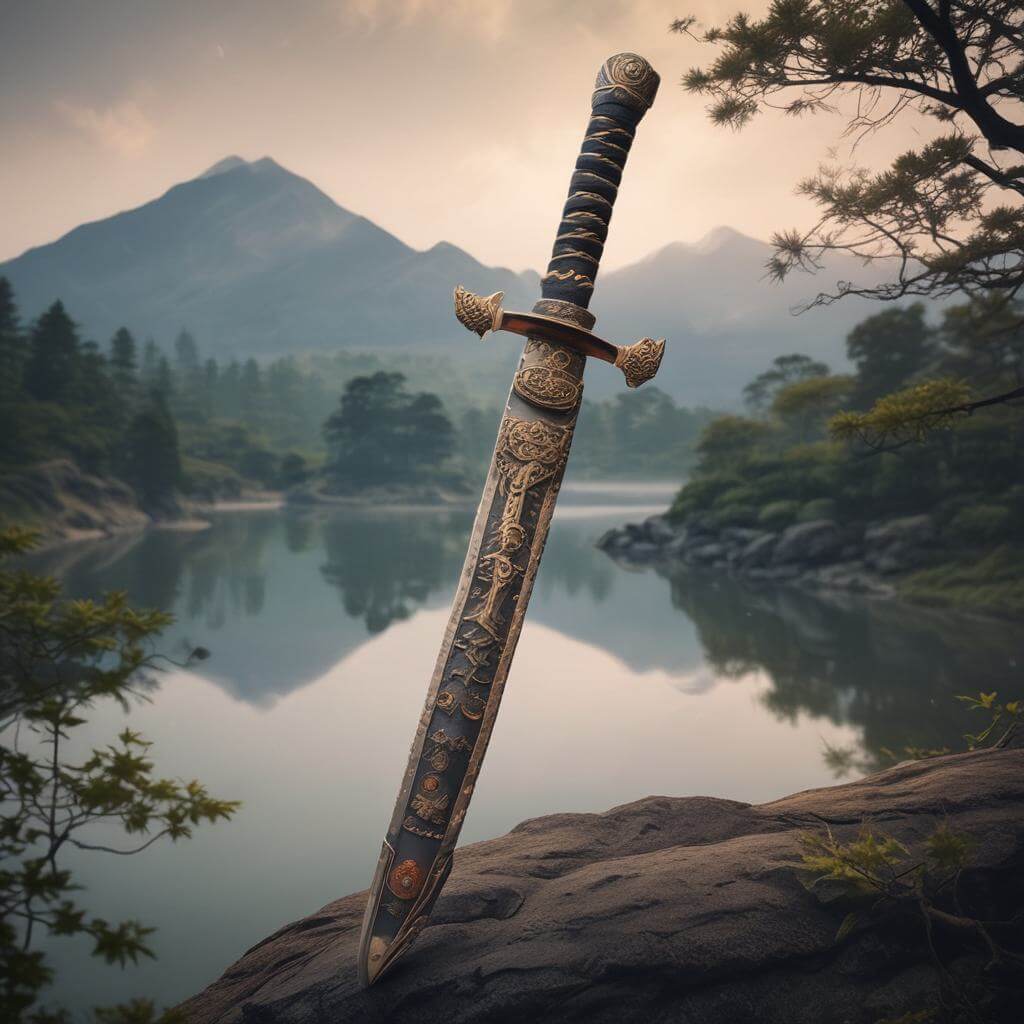The name of a samurai is more than just a word; it holds weight, symbolizing honor, bravery, and heritage. These legendary warriors from Japan’s 12th century are remembered for their essential role in history and their adherence to the code of conduct, Bushido, which emphasized ethical behavior, loyalty, and self-discipline. Guided by Confucian concepts, samurai upheld values of Honour, valor, and respect while mastering weapons like swords, bows, arrows, and spears. Their strength and skills in battle earned them a prominent place in the service of feudal lords, or daimyos, shaping Japan’s culture, society, and politics for centuries.
The legacy of samurai names continues to inspire modern-day imagination. From games, novels, and stories to baby name guides, these names have become a timeless symbol of tradition and spirit. Parents often seek samurai-inspired names for boys, and girls, or gender-neutral options that reflect loyalty, bravery, and unique cultural roots. Tools like a name generator make it easier to find names that truly stand out, connecting us to the world of samurai.
Famous figures like Oda Nobunaga, one of the Three Great Unifiers of Japan, and the traditional warriors of the Edo period (1603–1867) remind us of the enduring influence of the aristocratic warrior class, which was a hereditary military title until its abolition in 1876. By exploring this history, we delve into the spirit of these elite warriors, who oversaw societal changes under daimyos while maintaining their significance in shaping Japan’s identity.
Samurai names, revered for their honor and legacy, starkly contrast with Bandit Names, which evoke a sense of rebellion and defiance. While samurai upheld the Bushido code, bandits often thrived on chaos, creating a captivating duality in Japanese history. Exploring both offers a deeper understanding of the cultural and ethical spectrum that shaped Japan’s identity.
Overview of Famous Samurai Names
The samurai, honor-bound warriors of feudal Japan, left an unforgettable mark on history with their martial arts mastery and adherence to Bushido, the ethical rules they lived by. Figures like Oda Nobunaga, Toyotomi Hideyoshi, and Ieyasu Tokugawa rose to fame during Japan’s most turbulent periods, shaping the nation’s future with their courage and integrity. Remarkably, Tomoe Gozen, a female samurai, stood out as a respected warrior in an era dominated by men, earning admiration for her skills with the sword. Another notable figure is Yasuke, a black samurai who served as a loyal bodyguard to Oda Nobunaga, showing that the samurai spirit transcended origins and social status.
Even as the Meiji Revolution ended the aristocracy and abolished the feudal military caste, the samurai’s influence persisted. Their values of loyalty, self-discipline, and respect inspired modern professionals and businessmen in Japanese culture. Stories of these warriors remain at the center of attention, appearing in films, novels, and video games. The greatest samurai names, like Miyamoto Musashi, carry deep meanings, reflecting their rank, true heritage, and ethical behavior. These names symbolize not just the pre-modern aristocracy, but a legacy of honor and mastery that continues to fascinate generations.
Male Samurai Names
Male samurai, with their steadfast honor and exceptional skill, shaped the course of Japanese history and culture. Their names are etched in the annals of bravery and strategic brilliance, symbolizing loyalty, discipline, and mastery of the art of war.
Shoji Kuroda (Kyoto): Known as the “Shadow Blade,” Shoji’s agility and stealth made him a formidable presence on the battlefield.
Adam – Hebrew origin meaning “Earth,” related to William Adams, the first English Samurai.
Bushi – “Warrior,” epitomizes strength and honor.
Takeshi – “Fierce,” embodying bravery.
Masamune – “True meaning,” associated with famous swordsmiths.
Ryūko – “Dragon spirit,” representing strength and mysticism.
Jinrai – “Divine thunder,” a name of power.
Gendou – “Strong wielder,” suitable for a formidable warrior.
Kaito – “Ocean flying,” reflecting freedom and vastness.
Sōhei – “Warrior monk,” denoting discipline and strength.
Ichiro – “First son,” representing leadership and lineage.
Raikou – “Thunder light,” evoking speed and brilliance.
Kiyoshi – “Pure/serene,” symbolizing calm strength.
Isamu – “Courage,” an essential trait of a samurai.
Yoshimitsu – “Good and honest,” emphasizing honor.
Hiroto – “Vast flying,” a name reflecting freedom and ambition.
Hosoki Yoshō – “Noble in spirit,” an ideal trait for a warrior.
Takaniiwa Tomorime – “Peaceful mountain rock,” symbolizing stability and strength.
Haruki Sora – “Shining bright sky,” evoking leadership and clarity.
Renjiro Hideo – “Excellent man,” a title fitting for a strong leader.
Ryoji Takashi – “Dragon,” symbolizing power and dominance.
Isamu Kenta – “Courageous,” a key trait for samurai.
Daichi – “Great land,” reflecting strength and endurance.
Ryujiro Makoto – “Dragon second son,” signifying bravery and honor.
Kenzo Masaru – “Robust,” symbolizing physical and mental strength.
Haruto Toshiro – “Sun and intelligent,” a combination of enlightenment and vitality.
Hiroto Takeo – “Great and heroic,” a warrior’s defining traits.
Shimotsuo Katsusa – “Victory of the lower valley,” a metaphor for triumph.
Hayate Shingo – “Gale and true essence,” symbolizing speed and authenticity.
Yosuke Makoto – “Sun and sincerity,” ideal for a noble samurai.
Akechi – Means “shining; exceptional,” referring to Akechi Mitsuhide, a 16th-century samurai and general.
Sasshinabe Ookimunaga – “Great longevity of the heart,” symbolizing endurance and resilience.
Fukamakoki Momori – “Guardian of the deep forest,” representing protection and strength.
Ryūji – “Dragon child,” evoking power and mystique.
Shinji – “True second son,” signifying truth and lineage.
Haruki – “Spring child,” symbolizing renewal and vitality.
Aniwa Tesshishi – “Strong elder brother,” denoting leadership and courage.
Hagawa Hiyoshiie – “Good fortune of the river,” symbolizing prosperity.
Takeuchino Tanobu – “Humble warrior from the bamboo,” representing strength with humility.
Daiki – “Great glory,” a name fit for a leader.
Hayato – “Falcon person,” symbolizing sharp vision and freedom.
Keiji – “Blessed second son,” emphasizing fortune and family.
Ryūnosuke – “Dragon son,” reflecting majesty and legacy.
Takahiro – “Affluent,” denoting prosperity and abundance.
Yoshito – “Good person,” an ideal samurai trait.
Saguchi Arinobumi – “Virtuous pomegranate,” symbolizing nobility.
Miyamoto Musashi – Legendary samurai, philosopher, and swordsman.
Oda Nobunaga – “Greatly enriched,” a historical unifier of Japan.
Tokugawa Ieyasu – “Steadfast,” one of Japan’s greatest shoguns.
Date Masamune – “Sound,” a famed samurai lord.
Sanada Yukimura – “Snow village protector,” revered Sengoku-era hero.
Takeda Shingen – “Real core,” a powerful daimyo.
Saigo Takamori – “West village, high,” known as the “last samurai.”
Sakamoto Ryoma – “Bend Mountain,” a visionary leader.
Yagyū Munenori – “Faithful,” a samurai and master swordsman.
Hattori Hanzō – “Ninja leader,” famed strategist and warrior.
Akechi Mitsuhide – “Excellent warrior,” historical general.
Shimazu Yoshihiro – “Tolerant,” a key figure in unifying Kyushu.
Nitta Yoshisada – “Loyal,” known for his dedication and honor.
Asakura – Linked to Yoshikage Asakura, a skilled 16th-century political leader.
Ashikaga – A dominant samurai clan in Japanese history.
Date – Associated with Date Masamune, a powerful 17th-century samurai.
Edward – English origin meaning “wealth,” related to Edward Schnell, a foreign samurai.
Henry – Refers to Henry Schnell, another foreign samurai and arms dealer.
Ken – Means “strong, healthy,” famously portrayed in The Last Samurai.
Kenji – Signifies “intelligent second son,” often linked to vigor.
Kusunoki – Refers to Kusunoki Masashige, a samurai symbol of loyalty.
Minamoto – A prominent samurai clan, with Yoritomo as the first Kamakura shogun.
Miyamoto – Refers to Miyamoto Musashi, a legendary swordsman and philosopher.
Nagahide – Linked to Nagahide Nawa, a key retainer of the Oda clan.
Nobuhisa – Signifies “civilian warrior,” linked to Shimazu clan leadership.
Oda – Refers to Oda Nobunaga, a great unifier of Japan.
Saigo – Saigo Takamori, the famous “last samurai.”
Sanada – Refers to Yukimura Sanada, a Sengoku-period hero.
Shimazu – A samurai clan crucial in unifying Kyushu.
Tokugawa – Associated with Tokugawa Ieyasu, a prominent shogun.
Toyotomi – Refers to Hideyoshi Toyotomi, the second great unifier.
Tsunenari – The current head of the Tokugawa family.
Uesugi – Refers to Uesugi Kenshin, known as the “Dragon of Echigo.”
William – Refers to William Adams, the first Englishman to become a samurai.
Yasuke – The first African samurai, bodyguard of Oda Nobunaga.
Yasumi – Linked to Yasumi Naomasa, a 16th-century commander.
Yoshitsune – A legendary warrior from the Minamoto clan.
Nobunaga – Famous warlord known for his strategic brilliance.
Miyamoto – Refers to Miyamoto Musashi, the legendary swordsman.
Chikara – Means “power,” symbolizing strength.
Daichi – Signifies “big” or “great,” ideal for a leader.
Gorō – Meaning “fifth son,” often associated with the family legacy.
Haruko – Represents “spring,” evoking renewal and energy.
Hidemi – Implies “excellence,” a noble trait for a warrior.
Hideo – Means “fine” or “splendid,” denoting dignity.
Momoka – Suggests “hundred,” symbolizing completeness.
Naruhito – Signifies “virtue,” a vital samurai quality.
Ryūji – This means “dragon,” representing power and mystique.
Kenji Tanaka (Kyoto): A master swordsman celebrated for his unwavering discipline and unmatched combat prowess.
Haruto Inoue (Tokyo): Renowned for his lightning-fast reflexes and precision with the katana.
Takumi Nakamura (Osaka): Famous for his unwavering loyalty and exceptional skill in archery.
Hiroshi Yamamoto (Edo): A fearless tactician whose strategic brilliance turned the tide of countless battles.
Riku Takahashi (Sapporo): A master of guerrilla warfare, known for his stealth and unpredictability.
Ren Watanabe (Sendai): Revered for his immense strength and mastery of the katana.
Kazuki Morimoto (Osaka): A visionary strategist whose keen intellect shaped numerous military campaigns.
Daichi Suzuki (Hiroshima): A stalwart warrior whose resilience and courage were unparalleled.
Masao Ishida (Hiroshima): Renowned for his combat expertise and keen tactical mind.
Yuto Ueda (Kyoto): A legendary mounted warrior, celebrated for his dominance in cavalry combat.
Ryo Tanaka (Nagasaki): An archer of extraordinary skill, known for his calm and precise demeanor.
Shin Hoshino (Kyoto): A strategist whose tactical brilliance was key in pivotal victories.
Makoto Kato (Kyoto): Remembered for his exceptional loyalty and mastery of the sword.
Nori Saito (Yokohama): A spear master whose bravery inspired his comrades in battle.
Isamu Yamaguchi (Kyoto): A versatile warrior, equally skilled with the bow and the blade.
Jiro Takeda (Nara): A fearless leader admired for his tactical genius and combat skill.
Kenzo Suzuki (Kobe): A legendary archer, revered for his precision and bravery under fire.
Naoki Nishimura (Kyoto): A defense specialist, renowned for his resilience in holding key positions.
Taro Kimura (Osaka): A katana expert whose role in defending his homeland earned him enduring respect.
Akio Tanaka (Kyoto): A master swordsman whose discipline and skill were unparalleled.
Shun Kimura (Osaka): A cunning strategist who combined intellect with combat expertise.
Masashi Nakamura (Osaka): Renowned for his loyalty and unmatched precision in archery.
Aki Ota (Kyoto): A nimble warrior, skilled in wielding the naginata and other weapons.
Kazuya Yamamoto (Edo): A brilliant tactician known for his fearless approach in battle.
Toshi Arai (Yokohama): A samurai whose tactical ingenuity and bold leadership made him a legend.
Kenta Yamada (Kyoto): A charismatic leader celebrated for his martial expertise and inspiring leadership.
Satoshi Hashimoto (Fukuoka): A strategist whose innovative battle plans secured numerous victories.
Yoshi Endo (Nagasaki): Known for his intelligence and adeptness in rallying troops during critical moments.
Ryu Kinoshita (Tokyo): A master archer renowned for his speed and precision in the heat of battle.
Female Samurai Names
The remarkable history of onna-bugeisha—female samurai—offers a glimpse into a world where women defied traditional roles and excelled as warriors, strategists, and leaders. These trailblazing women displayed unparalleled bravery, skill, and tactical acumen, carving their names into the chronicles of Japan’s history.
Yumi Sasaki (Osaka): Known for her unparalleled speed and precision in swordsmanship, Yumi was a fearsome force in close combat.
Akai – Refers to Akai Teruko, a female warrior active even at 70 years old.
Beatrix – Inspired by Uma Thurman’s samurai-style character in Kill Bill.
Elektra – A martial artist in Marvel comics, linked to Japanese traditions.
Hikaru – Means “light,” related to a bow-wielding warrior from Otogi Zoshi.
Ito – Refers to Duke Ito Hirobumi, samurai-turned-politician.
Jingu – Empress Jingu, a legendary warrior empress from 200 A.D.
Jinx – A fictional female ninja from G.I. Joe.
Kaihime – A 16th-century female samurai known as “princess.”
Komatsuhime – A beautiful Sengoku-period warrior.
Machi – A samurai family member from Blade of the Immortal.
Masako – The wife of Minamoto Yoritomo, ruled as regent post his death.
Megohime – Diplomat and wife of Date Masamune.
Miho – From Sin City, a ninja and assassin.
Nakano – Refers to Nakano Takeko, a prominent Edo-period female samurai.
Oichi – A heroine from Samurai Warriors.
Onna – Represents the onna-musha, Japanese female warriors.
O-ren – Lucy Liu’s samurai-inspired character in Kill Bill.
Oyuki – From Urusei Yatsura, symbolizes winter and resilience.
Raiko – Means “lovely child,” featured in Utawarerumono.
Ran – From Carried by the Wind, a fierce swordswoman.
Taira – Symbolizes peace, related to the Taira clan.
Tsunade – A strong female warrior from Naruto.
Tomoe – Refers to Tomoe Gozen, a legendary 14th-century samurai.
Vernita – Vivica A. Fox’s character from Kill Bill.
Yamakawa – Refers to Yamakawa Futuba, an educator and fighter in the Boshin War.
Hana Kuroda (Kyoto): Dubbed the “Shadow of Kyoto,” her stealth and cunning made her a legend in guerrilla tactics.
Emi Fukushima (Hiroshima): An inspiring leader whose wisdom and martial prowess turned the tide in numerous battles.
Mio Yamamoto (Northern Japan): Famous for her exceptional skill with the naginata, she symbolized resilience and power.
Aiko Tachibana (Kyoto): Renowned for her precision in archery and leadership during critical clan defenses.
Aiko – “Beloved child,” symbolizing love and care.
Kaori – “Fragrance,” evoking a sense of grace and beauty.
Sakura – “Cherry blossom,” representing fleeting beauty.
Emi – “Beautiful blessing,” symbolizing elegance and joy.
Miyuki – “Beautiful happiness,” ideal for a graceful figure.
Yumi – “Bow/Archery,” reflecting precision and skill.
Natsumi – “Summer beauty,” symbolizing warmth and vitality.
Ami – “Friend,” representing loyalty and trust.
Kiyomi – “Pure beauty,” emphasizing virtue.
Haruka – “Distant/Remote,” evoking mystery and allure.
Sumi – “Clear,” symbolizing clarity and simplicity.
Reika – “Lovely flower,” representing natural beauty.
Shiori – “Bookmark/Poem,” suggesting creativity and refinement.
Nao – “Honest/Truth,” reflecting integrity.
Yoshiko – “Good child,” symbolizing virtue and kindness.
Takara – “Treasure,” signifying value and importance.
Rika – “Fragrant flower,” blending beauty with elegance.
Sayuri – “Small lily,” representing purity and grace.
Tomiko – “Child of wealth,” denoting prosperity.
Fumiko – “Child of literature,” ideal for an intellectual figure.
Mika – “Beautiful blossom,” symbolizing growth and charm.
Hosokawa Gracia – “Grace,” a historical noblewoman.
Okita Souji – “Gracious,” a name denoting elegance.
Rei – “Spirit/beautiful,” symbolizing inner and outer strength.
Akamari Himasu – “Red light of protection,” evoking resilience.
Hibara Anori – “Peaceful field,” reflecting harmony and balance.
Amakusa Shiro – “White, castle,” a name of purity and strength.
Tachibana Muneshige – “Guardian,” symbolizing protection.
Ayame Kazuki – “Harmony,” reflecting grace and poise.
Rei Aiko – “Graceful,” a trait embodying elegance and strength.
Michiko Kenji – “Beautiful, kind,” balancing beauty and resilience.
Amaya Haruka – “Night rain,” evoking mystery and serenity.
Hanae Mitsuru – “Blossom branch,” symbolizing life and growth.
Kaede Noriko – “Beloved leaf,” representing connection with nature.
Natsuki Haruo – “Summer hope,” evoking warmth and optimism.
Emi Yuriko – “Beautiful blessing,” a name of joy and elegance.
Maki Asuka – “True,” emphasizing integrity and authenticity.
Yumiko Mariko – “True child,” symbolizing purity and truth.
Mei Lin – “Beautiful gem,” a name that suggests value and refinement.
Aya Kiyomi – “Color and pure beauty,” representing vibrancy and virtue.
Kanae Ayako – “Blessed child and silk,” a name of softness and grace.
Yuna Akemi – “Gentle,” symbolizing kindness and peace.
Miku Kohana – “Beautiful sky flower,” reflecting beauty and freedom.
Amie Kaede – “Beautiful and maple leaf,” a harmonious and serene name.
Eriko Haruna – “Child with collar,” suggesting discipline and order.
Rei Yuriko – “Graceful and lily child,” a name of purity and grace.
Izumi Fumiko – “Spring fountain,” symbolizing renewal and life.
Megumi Haruka – “Distant fragrance,” evoking subtle strength.
Keiko Nakamura (Edo): A brilliant military strategist who was instrumental in her family’s victories.
Rin Takeda (Sendai): Celebrated for her tactical genius and bravery, Rin became a symbol of fearless leadership.
Chiyo Watanabe (Nagoya): Revered for her defensive strategies and unwavering resilience in battle.
Sakura Inoue (Edo): A master horsewoman and archer whose skills secured her homeland’s safety.
Yuki Matsumoto (Kyoto): A key figure in the defense of her village during critical sieges, remembered for her tenacity.
Natsumi Kobayashi (Fukuoka): A fierce duelist and a beacon of independence, she commanded great respect.
Izumi Kato (Kyoto): Famous for her unmatched swordsmanship and bravery in the face of overwhelming odds.
Haruka Tanaka (Nara): Known for her combat endurance and versatility on battlefields.
Aya Morimoto (Osaka): A visionary tactician and a skilled leader, celebrated for her decisive strategies.
Eri Shimizu (Tokyo): Her defensive strategies and strong leadership made her a notable figure in wartime.
Rei Yamaguchi (Kyoto): Expert in hand-to-hand combat, Rei’s leadership skills were unmatched.
Rika Hoshino (Kyoto): Renowned for her strategic brilliance and decisive actions during key battles.
Akira Nishimura (Kyoto): Known for her resilience and excellence in defensive tactics.
Megumi Ishida (Hiroshima): Her combat expertise and tactical thinking solidified her place among the greats.
Mai Kinoshita (Tokyo): Renowned for her exceptional archery skills and precision on the battlefield.
Kira Fujimoto (Osaka): A swordmaster who played a pivotal role in defending her homeland.
Eiko – Means “glory,” reflecting honor and success.
Hanako – Represents “flower,” symbolizing beauty and grace.
Harumi – Signifies “serene weather,” evoking calm strength.
Miyako – Means “beautiful,” symbolizing elegance.
Natsuko – Represents “summer,” reflecting vitality.
Reiko – Implies “tinkling of jade,” symbolizing refinement.
Rie – Means “reason,” associated with wisdom and intellect.
Chisato Suzuki (Kobe): Known for her bravery and unmatched skills in archery.
Ami Takahashi (Sapporo): A master of stealth and guerrilla warfare, known for her unpredictable tactics.
Naomi Endo (Nagasaki): Her intelligence and battlefield leadership were revered across regions.
Sayuri Ota (Tokyo): Agile and versatile, she was adept at wielding multiple weapons, including the naginata.
Kana Yamada (Kyoto): A powerful leader who inspired her allies with martial expertise.
Nozomi Saito (Yokohama): Renowned for her skill with the spear and unyielding courage in combat.
Yuna Kimura (Osaka): A strategist whose sharp mind and combat prowess turned battles in her favor.
Risa Arai (Yokohama): Her boldness and tactical ingenuity earned her respect among warriors.
Kaori Ueda (Kyoto): A master of reconnaissance missions, celebrated for her intelligence and stealth.
Cool Samurai Names
The samurai were warriors who embodied courage, precision, and unyielding honor. These names, steeped in the legacy of the samurai, reflect their unparalleled combat skills, tactical brilliance, and relentless spirit.
Kuro Matsuda (Nagoya): Renowned for his shadow-like movements and precise, lethal strikes.
Hoshikage – “Star shadow,” evoking mystery.
Tatsumaki – “Dragon wind,” symbolizing speed and power.
Fuyutsuki – “Winter moon,” representing beauty and calm.
Shinkai – “Deep sea,” denoting depth and wisdom.
Ryūsen – “Dragon stream,” suggesting flow and strength.
Tsukikage – “Moon shadow,” a poetic and mysterious name.
Kurogane – “Black steel,” reflecting strength and resilience.
Inazuma – “Lightning bolt,” symbolizing speed and energy.
Seiryū – “Azure dragon,” a mythical and majestic name.
Kaminari – “Rumble,” evoking fear and power.
Akurate Mashi – “Reckless warrior,” symbolizing unpredictability.
Sawanagi Ichibōse – “One wave of the stream,” evoking adaptability.
Ryo – “Refreshing,” a versatile and spirited name.
Kōsaka Masanobu – “Righteousness,” embodying integrity.
Gotō Matabei – “Vigorous,” representing energy and drive.
Hoshi Takahi – “High star,” suggesting ambition and prominence.
Hiroaki Satoru – “Wide and bright,” reflecting expansiveness and wisdom.
Riku Ryota – “Land and refreshing,” representing vitality and connection to nature.
Kaori Michiyo – “Beautiful generations,” a timeless and elegant name.
Taichi Eiji – “Prosperous,” embodying success and growth.
Esumi – Means “creek, inlet, bay,” evoking serenity.
Eto – Signifies “river wisteria,” linked to Taira clan descendants.
Kobe – A famous region and versatile name with global connections.
Naru – Charming and wholesome, ideal for a samurai identity.
Torii – Symbolizes a sacred gate, bridging spirituality and honor.
Ryuji Watanabe (Sendai): A fierce warrior with dragon-like ferocity and strategic genius.
Raiden Hoshino (Edo): Known for his lightning-fast swordsmanship and commanding presence.
Shiro Kageyama (Osaka): A master of stealth, celebrated for his deadly precision in battle.
Daisuke Sato (Tokyo): Famous for his cunning tactics and unflinching courage under pressure.
Hiroto Nakajima (Fukuoka): Revered for his impeccable sword technique and bravery in combat.
Ryota Nakamoto (Osaka): Renowned for his lightning-quick reflexes and deadly accuracy.
Takeshi Arata (Kyoto): A warrior of immense strength and unyielding resolve in battle.
Jin Takamura (Hiroshima): A relentless fighter, revered for his unwavering pursuit of victory.
Rikuto Sugiyama (Yokohama): A master archer, famous for his precision and deadly calm.
Taro Kobayashi (Nara): Known for his fierce loyalty and fearsome combat prowess.
Shinobu Kawashima (Nagasaki): A stealth expert, celebrated for his unmatched skill in espionage.
Kazuo Taniguchi (Sapporo): Renowned for his unyielding resolve and tactical brilliance.
Kaito Morishita (Kyoto): A katana master with fierce determination and extraordinary skill.
Tatsuo Inoue (Edo): Revered for his commanding presence and exceptional swordsmanship.
Haruto Maeda (Kyoto): Celebrated for his bravery and sharp strategic mind.
Ryusei Okamoto (Sendai): Known for his ferocity in battle and mastery of the sword.
Renji Aoki (Kobe): A speed-focused samurai whose blade strikes were deadly and efficient.
Kojiro Tanabe (Kyoto): A katana expert, famed for his precision and unmatched skill.
Yuki Takahiro (Nagoya): Renowned for his loyalty and formidable strength in combat.
Hayato Fujikawa (Kyoto): A strategist and warrior known for his exceptional strength and intellect.
Takashi Nishida (Hiroshima): Celebrated for his resilience and unbreakable will in combat.
Kenzo Oshima (Tokyo): A fearless warrior, admired for his exceptional combat prowess.
Shinji Yagami (Fukuoka): Famous for his lightning-quick strikes and fearless tactics.
Toshiro Kaneko (Hiroshima): Known for his resilience and unyielding determination in every fight.
Satoru Ichikawa (Osaka): A cunning tactician, relentless in his pursuit of victory.
Kenta Moriyama (Kyoto): A charismatic leader with an unbreakable spirit and tactical brilliance.
Akira Yamada (Kyoto): Revered for his unshakable courage and exceptional combat skills.
Ryota Nakamoto (Osaka): A samurai with razor-sharp reflexes and deadly precision.
Raiden Hoshino (Edo): A legendary fighter known for his lightning-fast strikes and tactical prowess.
Famous Samurai Names
The world of samurai is rich with iconic figures who have shaped history, culture, and even fiction. These individuals—whether real or imagined—embody the values of honor, bravery, and martial excellence.
Miyamoto Musashi: A legendary swordsman and ronin, famous for his undefeated record in 61 duels and his innovative double-sword technique.
Imagawa – Refers to a notable anime and historic stream of power.
Takeda – Linked to Takeda Shingen, a powerful Sengoku-era daimyo.
Imagawa Yoshimoto – “Auspicious,” a renowned Sengoku-period figure.
Ashikaga Yoshiteru – “Enlightened,” a shogun of the Ashikaga clan.
Minamoto no Yoshitsune – “Brave man,” a legendary warrior.
Chosokabe Motochika – “Source,” a daimyo with notable influence.
Toyotomi Hideyoshi – “Good fortune,” a unifier of Japan.
Hojo Ujiyasu – “Greater,” a key strategist.
Matsunaga Hisahide – “Excellence,” a powerful daimyo.
Toyotomi – Hideyoshi Toyotomi, is one of Japan’s greatest leaders.
Tomoe Gozen: A courageous female samurai from the Genpei War, renowned for her skill in battle and exceptional bravery.
Minamoto no Yoshitsune: A brilliant military commander of the Minamoto clan, celebrated for his tactical genius during the Genpei War.
Oda Nobunaga: A visionary daimyo who began the unification of Japan during the tumultuous Sengoku period.
Toyotomi Hideyoshi: Nobunaga’s successor, known for completing the unification of Japan and instituting lasting reforms.
Tokugawa Ieyasu: The founder of the Tokugawa shogunate, whose rule ushered in over 250 years of stability in Japan.
Hattori Hanzō: A ninja and samurai famous for his espionage skills, loyalty, and service to Tokugawa Ieyasu.
Uesugi Kenshin: Revered as the “War God,” this daimyo is remembered for his rivalry with Takeda Shingen.
Takeda Shingen: A renowned strategist and military leader, known for his fierce competition with Uesugi Kenshin.
Date Masamune: A regional leader famous for his crescent-moon helmet and founding the city of Sendai.
Sasaki Kojirō: A master swordsman known for his skill with the long sword “Monohoshizao” and his legendary duel with Miyamoto Musashi.
Sanada Yukimura: A samurai celebrated for his tactics and bravery, particularly during the Siege of Osaka.
Honda Tadakatsu: Tokugawa Ieyasu’s loyal general, renowned for his invincibility and prowess on the battlefield.
Yagyu Munenori: A master swordsman who founded the Yagyū Shinkage-ryū school of swordsmanship.
Kusunoki Masashige: A samurai hero remembered for his loyalty and brilliance during the Nanboku-chō Wars.
Ito Ittosai: A legendary swordsman credited with founding the Ittō-ryū school of swordsmanship.
Amakusa Shirō: The charismatic leader of the Shimabara Rebellion, remembered for his youthful courage and leadership.
Goemon Ishikawa: A folk hero and outlaw often likened to Robin Hood for his acts of thievery and defiance.
Okita Sōji: The loyal captain of the Shinsengumi’s first unit, known for his exceptional swordsmanship.
Himura Kenshin: The fictional protagonist of Rurouni Kenshin, a wandering samurai who vows never to kill again, representing redemption and peace.
Good Samurai Names
Samurai, revered for their steadfast loyalty, wisdom, and commitment to justice, have carved a legendary place in Japanese history. These noble warriors upheld values of compassion and integrity while protecting their people and fostering harmony.
Haru Tanaka (Tokyo): An unyielding protector of the innocent, renowned for their bravery and sense of justice.
Taro Sakamoto (Kyoto): A steadfast warrior whose dedication to defending the weak remains unmatched.
Ryu Yamamoto (Hiroshima): Esteemed for his unwavering moral principles and his pursuit of justice.
Masato Fujimoto (Nagoya): A fair and wise figure, celebrated for settling disputes with remarkable insight.
Shinji Morimoto (Nara): A respected leader known for peaceful resolutions and sage advice.
Akira Suzuki (Fukuoka): Famed for selfless acts of charity and uplifting the impoverished.
Yoshiro Kato (Sapporo): Admired for bringing calm and balance during times of strife.
Kenji Nakamura (Osaka): Revered for his valor and sacrifice in shielding his village from danger.
Takumi Ueda (Kyoto): Known for his extraordinary courage and commitment to preserving peace.
Kazuhiro Saito (Yokohama): A symbol of loyalty and a guiding light for his people in turbulent times.
Kazuo Endo (Nara): Celebrated for his leadership and unwavering dedication to upholding justice.
Tadashi Kimura (Osaka): A selfless hero devoted to the betterment of his community.
Hiroshi Takahashi (Edo): A compassionate soul striving to bring unity and harmony to fractured clans.
Daichi Watanabe (Sendai): Praised for his gentle demeanor and exceptional guidance during crises.
Riku Hashimoto (Nagasaki): A staunch advocate for the vulnerable, embodying true samurai ideals.
Yuta Nishimura (Fukuoka): Known for his soft-spoken wisdom and commitment to duty.
Takeshi Matsuda (Kobe): A kind-hearted warrior who worked tirelessly to uplift the oppressed.
Renji Takeda (Sendai): A beacon of selflessness, always prioritizing his people’s welfare.
Shota Ota (Kyoto): Lauded for his courage in safeguarding the weak and fostering peace.
Hikaru Yamada (Yokohama): A tireless defender of the downtrodden, cherished for his moral resolve.
Naoki Kojima (Hiroshima): A paragon of duty, admired for his empathy and strength.
Toshiro Kanemoto (Fukuoka): Remembered for his steadfast commitment to peace and justice.
Yoshio Nakajima (Nagoya): Esteemed for his wisdom and efforts to maintain balance and unity.
Haruto Shimizu (Hiroshima): A virtuous leader recognized for his fair and just governance.
Masaru Hayashi (Osaka): A celebrated peacemaker, pivotal in mending the rifts between feuding groups.
Toru Okada (Kyoto): Renowned for his devotion to fairness and justice, always prioritizing others’ well-being.
Kenta Arai (Tokyo): A champion of peace, whose kind heart inspired hope among the needy.
Evil Samurai Names
While samurai are often remembered for their honor and duty, some strayed into darkness, using their formidable skills to oppress, deceive, and destroy. These individuals embody the sinister aspects of the samurai legacy, leaving a trail of suffering and chaos in their wake.
Kage Akuma (Kyoto): A master manipulator, feared for his cunning betrayals and ruthless power plays.
Ryu Hayashi (Hiroshima): A tyrant who instilled fear through terrorizing the weak and extorting entire villages.
Shin Mori (Edo): Known for his bloodthirsty raids, leaving devastation and anguish in his path.
Taro Watanabe (Nara): A brutal enforcer whose harsh punishments and vendettas left no one safe.
Kenji Nakamura (Tokyo): A corrupt warrior who traded honor for wealth, exploiting his power for greed.
Dai Oni (Osaka): A cruel figure who ruled his clan with an iron fist, earning the fear of all who opposed him.
Akira Fujimoto (Fukuoka): A deceptive and ambitious samurai who rose through treachery and betrayal.
Jiro Takeda (Sendai): A notorious sadist, finding joy in chaos and suffering wherever he ventured.
Takumi Matsuda (Kobe): A merciless enforcer, known for his heartless brutality and thirst for dominance.
Kazuhiro Saito (Yokohama): A master of deceit and double-crossing, feared even by his closest allies.
Yoshiro Kato (Sapporo): A dark innovator, infamous for conducting forbidden experiments to expand his power.
Renji Takeda (Sendai): An ambitious schemer, willing to destroy lives in pursuit of his twisted goals.
Kazuo Endo (Nara): A relentless pursuer of power, stopping at nothing to achieve his malevolent ambitions.
Tadashi Kimura (Osaka): A despotic ruler, feared for his iron rule and complete lack of compassion.
Shota Ota (Kyoto): A manipulative and calculating figure, always plotting for his advancement.
Riku Hashimoto (Nagasaki): A vicious warrior infamous for leading violent attacks on defenseless villages.
Hikaru Yamada (Yokohama): A cold-hearted figure, remembered for his cruelty and brutal methods.
Masaru Hayashi (Osaka): A sadist who thrived on torture and the suffering of others.
Haruto Shimizu (Hiroshima): An oppressive leader, feared for his cruel tactics and unrelenting punishments.
Naoki Kojima (Hiroshima): A relentless avenger, driven by an insatiable desire for revenge at any cost.
Toshiro Kanemoto (Fukuoka): A harbinger of chaos, whose malevolent deeds sowed fear and despair.
Yuta Nishimura (Fukuoka): A cold-blooded assassin, known for his precise and ruthless executions.
Toru Okada (Kyoto): A tyrant whose oppressive rule cast a shadow over all who lived under him.
Hiroshi Ueda (Kyoto): A warrior consumed by bloodlust, infamous for his delight in the torment of others.
Noboru Inoue (Kyoto): A sadistic figure who relished in causing pain and misery.
Yoshio Nakajima (Nagoya): A fearmonger who thrived on the despair and terror of the powerless.
Samurai Sword Names
Samurai swords, or katanas, are not mere weapons but symbols of the warrior’s honor, strength, and spirit. Each name reflects a unique characteristic, drawing inspiration from nature, mythology, and the deep cultural roots of Japan.
Hikariken (“Blade of Light”): A radiant sword that shines with every swing, illuminating even the darkest battles.
Kurogami – “Black paper,” symbolizing elegance and mystery.
Anabira – “Petal blade,” combining delicacy and sharpness.
Hikariyume – “Light dream,” reflecting a balance of power and serenity.
Mizuhana – “Water flower,” symbolizing fluidity and beauty.
Shōrin – “Rising forest,” representing resilience.
Hoshiyomi – “Star reader,” evoking wisdom and foresight.
Sakurazaki – “Cherry blossom cape,” symbolizing fleeting beauty.
Fujin – “Wind god,” a powerful and divine name.
Tengoku – “Light of heaven,” symbolizing divinity.
Tsuchinoko – “Earth serpent,” denoting mystery and danger.
Rei – “Spirit/beautiful,” embodying elegance and strength.
Tadashi – “Loyal/just,” reflecting fairness and honor.
Tsubasa – “Wings,” symbolizing freedom and aspiration.
Kazuki – “Harmonious hope,” representing peace and unity.
Kurogane (“Dark Steel”): Renowned for its imposing black hue and unmatched resilience in combat.
Ren – “Lotus,” symbolizing purity and calm.
Kunei – “Possessor of great wisdom,” an ideal trait for both genders.
Kazuki – “Harmonious hope,” emphasizing unity.
Maedaga Tayasune – “Calm front,” symbolizing composure.
Tsuchinokami (“Sword of the Earth God”): A grounded and indomitable blade, that echoes the strength of the earth.
Kazeikazuchi (“Thunderous Wind”): Swift as the breeze and as powerful as rolling thunder.
Seishinken (“Pure Spirit Blade”): A weapon embodying purity, reflecting the noble intentions of its wielder.
Ryumaru (“Dragon’s Spiral”): A blade feared for its coiled strikes and devastating precision.
Amegiri (“Cutter of Rain”): As relentless and fluid as a storm’s downpour, slicing through anything in its path.
Tenken (“Sword of the Heavens”): A divine weapon, believed to carry the blessings of the celestial gods.
Hoshizora (“Starry Cosmos”): Its strikes are as countless and swift as the stars scattered across the night sky.
Mizunokami (“Water God’s Blade”): A fluid and adaptive sword that flows like water through its enemies.
Shinobikage (“Shadow of the Ninja”): Designed for stealth and precision, delivering unseen and lethal blows.
Kagemaru (“Circle of Shadows”): A mysterious blade enveloped in darkness, commanding fear and respect.
Tengukiri (“Slayer of Tengu”): Forged to defeat mythical creatures with swift and decisive power.
Fujinami (“Wisteria Wave”): A graceful yet powerful blade, embodying elegance and latent strength.
Yakusoku (“The Oathkeeper”): A katana representing the unbreakable bonds of honor and loyalty.
Kazehime (“Princess of the Wind”): Delicate yet commanding, with movements as graceful as the breeze.
Shizukana (“The Silent One”): Striking without a sound, its precision is unparalleled.
Tsuyukusa (“Morning Blossom”): Reflects fleeting beauty and delivers swift, deadly blows.
Inazuma (“Flash of Lightning”): A sword with speed and power that strikes like a sudden storm.
Hibana (“Ember’s Spark”): A fiery blade igniting battles with its explosive energy.
Yamabiko (“Echo of the Mountains”): Resonates with the strength and permanence of towering peaks.
Hanaikusa (“Floral Blade”): Combining delicate beauty with lethal sharpness.
Tenryu (“Heavenly Dragon”): A majestic katana that exudes divine strength and presence.
Ginsei (“Star of Silver”): Shimmering brightly, it guides its wielder like a beacon through the night.
Oborozuki (“Moon in the Mist”): A calm and enigmatic blade that reflects the serenity of moonlight.
Mugen (“The Infinite One”): Representing limitless potential and boundless power.
Tsuru (“The Crane”): Graceful and precise, embodying longevity and elegance in every strike.
Raimei (“Thunder’s Roar”): Known for its earth-shaking strikes that echo across the battlefield.
Mizuki (“Moon on the Water”): Reflects calmness, yet carries the fluid strength of flowing water.
Hoshino (“Field of Stars”): Vast and brilliant, its strikes dazzle like the starry heavens.
Tsubame (“The Swallow”): Quick, agile, and graceful, delivering attacks with breathtaking speed.
Conclusion
Samurai names hold a unique charm that has captivated enthusiasts for generations. These names are not just labels but are symbols of honor, virtues, and an enduring connection to Japanese heritage. As a writer and history enthusiast, I find inspiration in the cultural lore and profound meanings behind these timeless titles. They reflect the strength and skill of warriors who became paragons of courage, shaping their legacies and leaving a lasting impact on the world. Whether you’re a gamer looking to create authentic characters or someone passionate about discovering the essence of samurai, these noble names provide a rich palette from which to draw. They are borne of history and infused with refinement, offering the perfect opportunity to celebrate the spirit and path of these warriors, whose influence extends beyond their era into the modern day.
Frequently Asked Questions About Samurai Names
- What is the significance of Samurai names?
Samurai names carry deep significance as they embody the values of loyalty, bravery, and honor while reflecting cultural and historical traditions. These names often represent the virtues and characteristics of admired warriors and their heritage. - How are Samurai names typically structured?
Samurai names typically consist of a surname indicating the family or clan, followed by a given name reflecting personal aspirations, attributes, or virtues. This structured format connects them to their lineage and ancestral origins. - Can Samurai names be used in creative works?
Absolutely! Samurai names add richness and authenticity to fictional characters in novels, games, or other creative works. They evoke cultural depth and inspire audiences with their meanings and traditionally associated traits. - Are Samurai names limited to Japanese descent?
No, Samurai names are not limited to people of Japanese descent. They are appreciated worldwide for their cultural and historical value. Anyone can adopt a Samurai name to connect with Japan’s rich heritage or for personal inspiration. - How do I choose the right Samurai name for myself or a character?
Consider the qualities, traits, and values you want the name to represent. Reflect on the spirit and strength of the Samurai, and select a name that aligns with the characteristics or role you have in mind. - Are there gender-specific Samurai names?
Some Samurai names are gender-specific, but many are gender-neutral, allowing for personal preference and inclusivity. The meanings often take precedence over gender distinctions. - How have Samurai names influenced modern culture?
Samurai names have a significant impact on modern culture, influencing literature, film, video games, and martial arts. They continue to inspire audiences with their strength, ideals, and timeless values. - What are some famous Samurai names in history?
Famous Samurai names such as Oda Nobunaga, Tokugawa Ieyasu, and Miyamoto Musashi are known for their heroic personalities and enduring legacies. Learning about these names offers a deeper connection to their story and the roles they played in shaping history.

